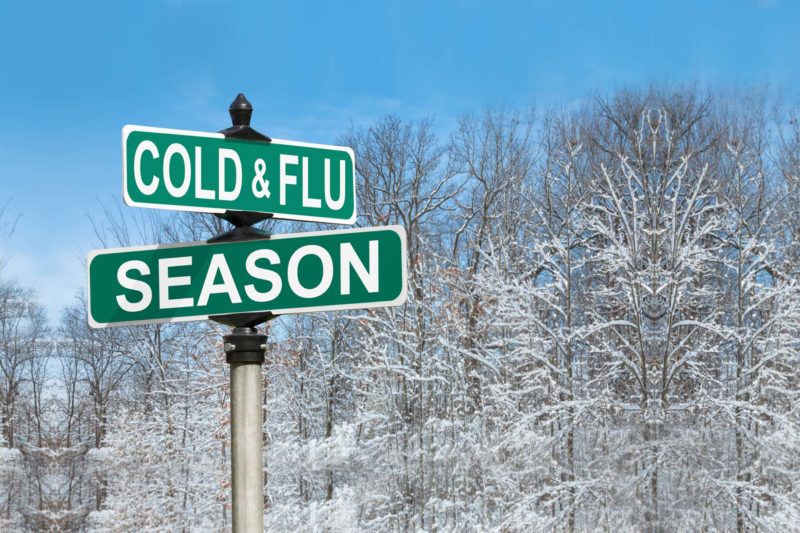Happy Flu Year!
by Jonathan Dickman, MD, PhD
It is wintertime and with that comes the predictable cold weather, snow… and influenza. This infection is not related to “the stomach flu” where people experience nausea, vomiting and diarrhea. Influenza is a completely different infection that involves high fevers, muscle aches, cough, breathing difficulty, low energy and generally feeling unwell for a week (or more). This virus comes to our community in the late fall season and can sometimes persist until springtime. This infection often results in several days of missed work and sometimes hospitalization and death. We are approaching peak flu activity, so being prepared is important!
So, what can you do? The first thing is to get vaccinated every year. Flu shots are available at pharmacies and clinics. Oftentimes you do not need to wait to see a doctor if you simply want to get vaccinated. I oftentimes hear that the flu shot makes them sick. While the flu shot causes an immune reaction (which is needed for it to work) and can sometimes result in minor changes in body temperature, the vaccination only contains pieces of the virus which are not capable of causing an actual infection. The flu shot gets this concern more often than other vaccinations because many people are getting sick with other colds this time of year, so by coincidence people get sick shortly after getting the shot. Another concern is that some patients tell me is that “I got the flu shot last year, but I still got the flu.” It is true that the flu shot is not perfect and some years are better than others. It is clear, however, that the flu shot will decrease the intensity of your illness even when the vaccination is less than ideal. In the end, all people six months or older should be vaccinated to provide protection against the influenza virus.
What if you think that you have an influenza infection? The first step is to cover your cough and use good hand hygiene (in other words, wash your hands!). Sometimes it is helpful to use a mask if you are coughing frequently. The second step is to determine if you need to see a doctor. Not everyone who gets sick with the flu needs medications. People at high risk for getting very sick from this infection and may benefit from medication include people under five or 65 years or older, pregnant women, those living in nursing homes or long-term care facilities and people with chronic health conditions that affect breathing, the heart, kidneys or your ability to fight off infections. If you fall into one of these groups (or are unsure) then call your healthcare provider for further guidance. If medications are prescribed, the earlier you start it the better it works. If prescription medication is not felt to be right for you, then drinking plenty of water and taking acetaminophen (Tylenol) for discomfort is generally safe.
When in doubt, call your doctor. If you do not have a doctor, call United Family Medicine at 651-241-1000, as we have same day appointments available. We can either give you the flu shot if you want to prevent infection or provide guidance if you are feeling unwell.



